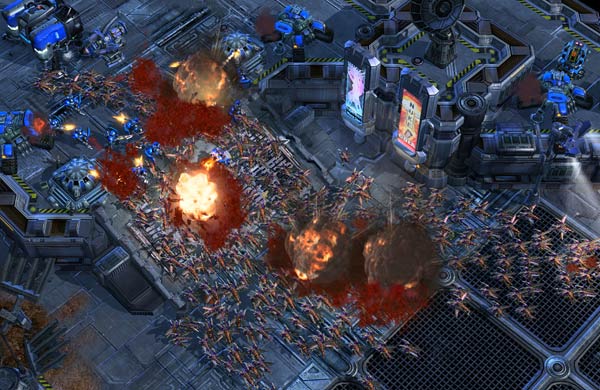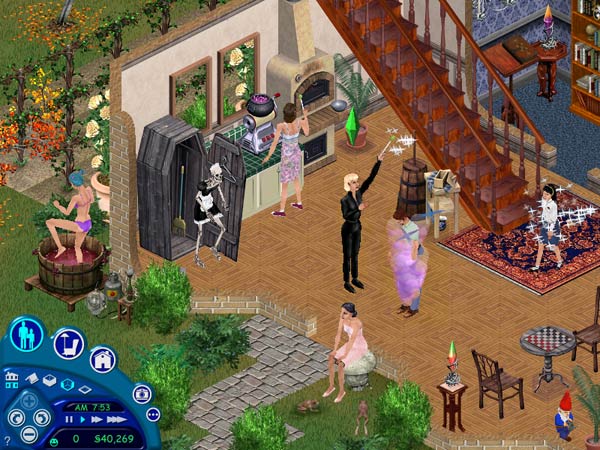A new study by scientists from Queen Mary University of London and University College London was undertaken to look into whether some video games can make your mind more agile and improve your strategic thinking capabilities. In a nutshell the answer is yes, if you play StarCraft, or no, if you play The Sims.
It was already "widely understood", reports Polygon, that games that reply upon fast reactions such as FPS shooters and racing games improve the player's non-gaming perceptual processes and reaction times. In effect they can help hone your senses. The researchers at QMU and UCL wanted to see if real time strategy (RTS) games like StarCraft worked similarly on improving a player's cognitive flexibility - improving fast, multi-tasking, strategic thinking.

In the university study 72 female volunteer subjects were trained to play specific video games. Two groups were taught how to play different versions of StarCraft while another group played The Sims, a game which doesn't require much tactical or memory skills use. The extent of the video game research was as follows; all the volunteers spent 40 hours playing the video games they were allocated over a period of between six to eight weeks. The test subjects took part in various psychological tests before and after these weeks of gaming experience to see the difference, if any.

These are the findings of the study; "the current work finds that real-time strategy games can promote our ability to think on the fly and learn from past mistakes," said researcher Dr. Brian Glass from Queen Mary's School of Biological and Chemical Sciences. Glass added that "Our paper shows that cognitive flexibility, a cornerstone of human intelligence, is not a static trait but can be trained and improved using fun learning tools like gaming."
The research article, published by Dr Glass and his associates was entitled 'Real-Time Strategy Game Training: Emergence of a Cognitive Flexibility Trait'. The study concludes that playing games which "emphasized maintenance and rapid switching between multiple information and action sources" can lead to a "large increase in cognitive flexibility" which can be measured in non-video gaming tasks.
This is the latest recent study which has found significant positive benefits in computer gaming. Earlier this year a University of Iowa study, of hundreds of people aged 50 and older, found that video gaming could reverse up to seven years of age-related brain function decline with improvements to memory, reasoning and visual processing observed in these older gamers.













